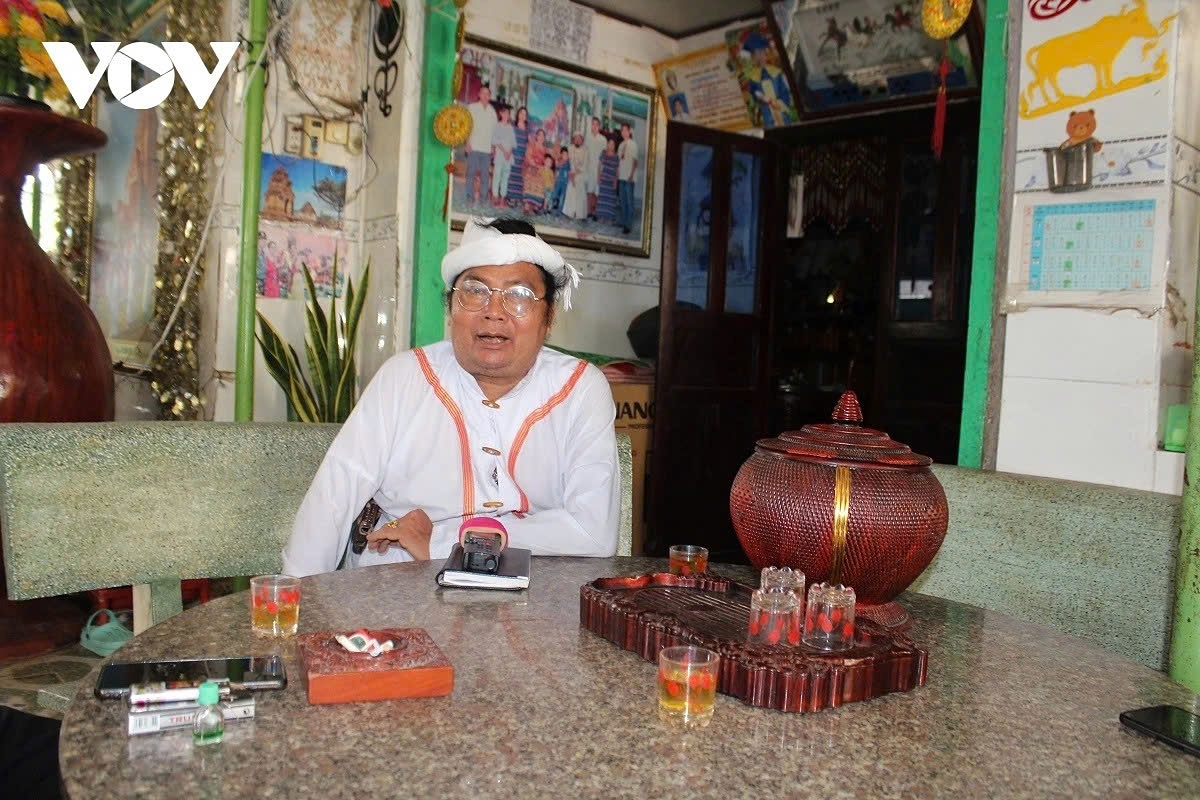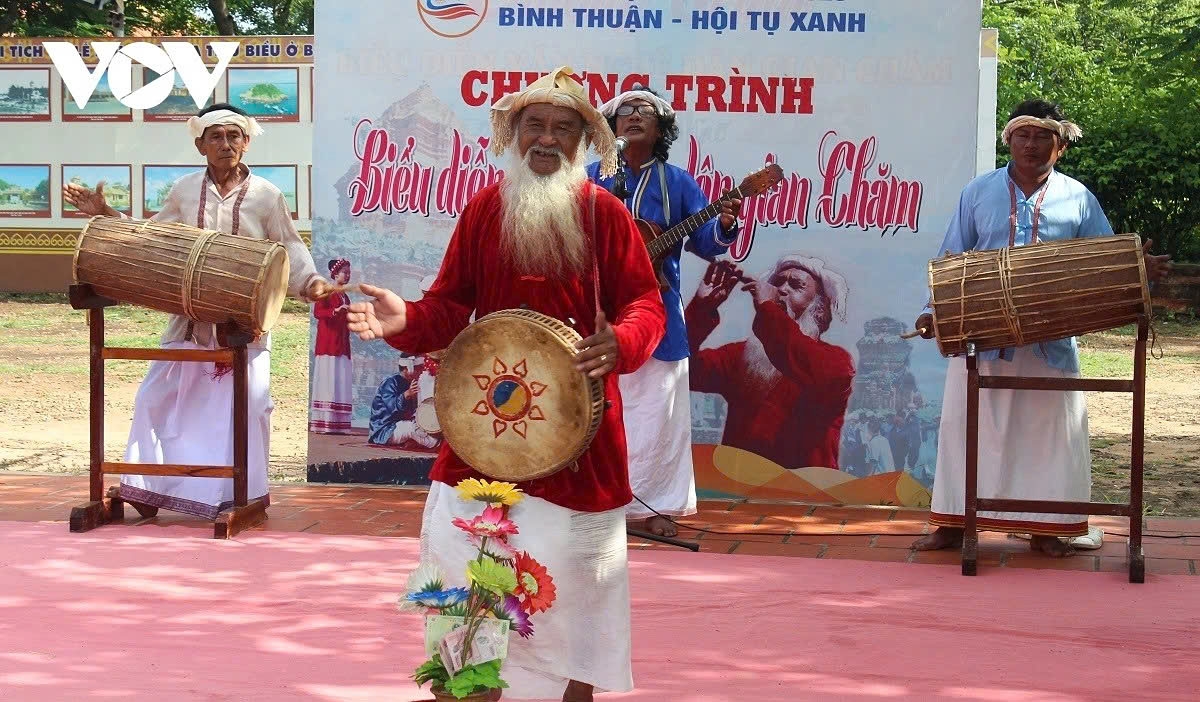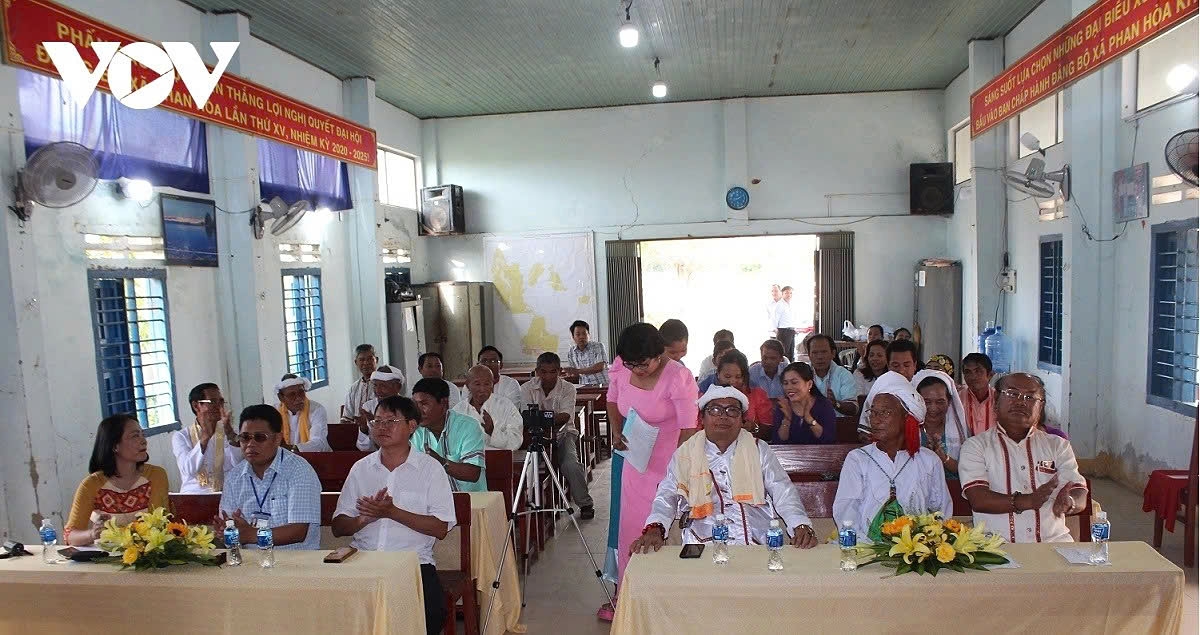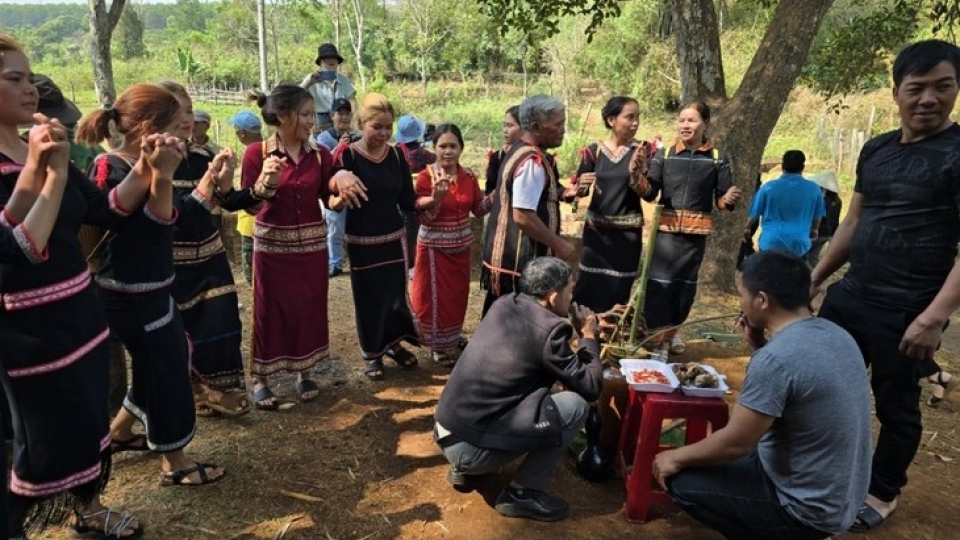Preserving Ariya singing - a cultural treasure of the Cham ethnic group
VOV.VN - Ariya, the Cham ethnic people’s traditional recitative singing that blends narrative, melody, and artistic lyrics, flourishes in festivals and cultural gatherings but must be preserved for future generations as a vital part of their cultural heritage.
Ariya is a traditional Cham poetic form, ranging from a few dozen lines to several hundred, often in lục bát (six-eight) meter. Unlike many folk traditions passed down orally, Ariya has also been preserved in ancient Cham manuscripts written in the Akhar Thrah script.

According to Thong Dinh Phung, an expert in Ariya singing from Lam Thuan village, central Lam Dong province, Ariya songs cover diverse themes, including historical events, love, customs, lunar calendar, and moral teachings.
“Ariya teaches about family life, ethics, and social values. Like the Cham script, Ariya is increasingly being forgotten; therefore, I hope that our Cham people can come together to preserve and relearn Ariya,” he says.
One of the most famous Ariya works is Bini-Cam (also called Anai mai Meng Makah), a tragic love story between a Bàni boy and a Bàlamon girl, separated by religious differences, ending with the boy leaping into the fire with his beloved. This work has inspired musicians and choreographers to create unique artistic pieces. Other Ariya genres include moral teachings for Cham women, such as Ariya Amuk Thruh Palei and Ariya Pataow Adat.

Ariya can be performed at any time, often during leisure or festivals. Its melodies, tonal scales, and vocal dynamics vary according to the performer’s mood, particularly during moonlit nights by rivers or temple ruins.
Recognising its historical, cultural, linguistic, and artistic value, authorities in Ninh Thuan and Binh Thuan provinces (now Khanh Hoa and Lam Dong provinces) have begun documenting Ariya through audio and video recordings and organising community classes to teach the art.
Lam Tan Binh, a distinguished Cham artisan from Binh Tien village, Bac Binh commune, Lam Dong, says to preserve and safeguard Cham folk music, in the past, the Binh Thuan Provincial Museum organised two classes to teach Cham folk music, specifically the Ariya chanting, in Phan Hiep and Phan Hoa communes of Binh Thuan province (now Bac Binh commune, Lam Dong province).
“Preserving Ariya maintains the Cham cultural identity. Ariya is rich in content and musical styles, highlighting the unity between Bàlamôn and Bàni communities. It’s essential to conserve and promote this heritage,” states the artisan.
On June 27, 2025, the Ministry of Culture, Sports, and Tourism officially recognised Ariya singing as a national intangible cultural heritage under Decision 2216. This recognition encourages Cham-inhabited localities to develop comprehensive preservation and promotion plans.

Assoc. Prof. Dr. Phan Quoc Anh, former Director of the Department of Culture, Sports, and Tourism of Ninh Thuan, says in their role of inheriting and continuing the heritage, localities with large Cham communities will continue to preserve and further promote this distinctive form of cultural heritage.
“We provide guidance, but implementation depends on communes and local governments. Preservation requires strategic planning and concrete action programmes,” he explains.
Going forward, authorities, specialists, and the Cham community in both Khanh Hoa and Lam Dong provinces should continue supporting Ariya artisans, digitising songs, expanding teaching programmes, especially for youth, and promoting performances at cultural events, tourism sites, and online platforms. These efforts will ensure that the melodies of Ariya continue to resonate through Cham villages for generations to come.





